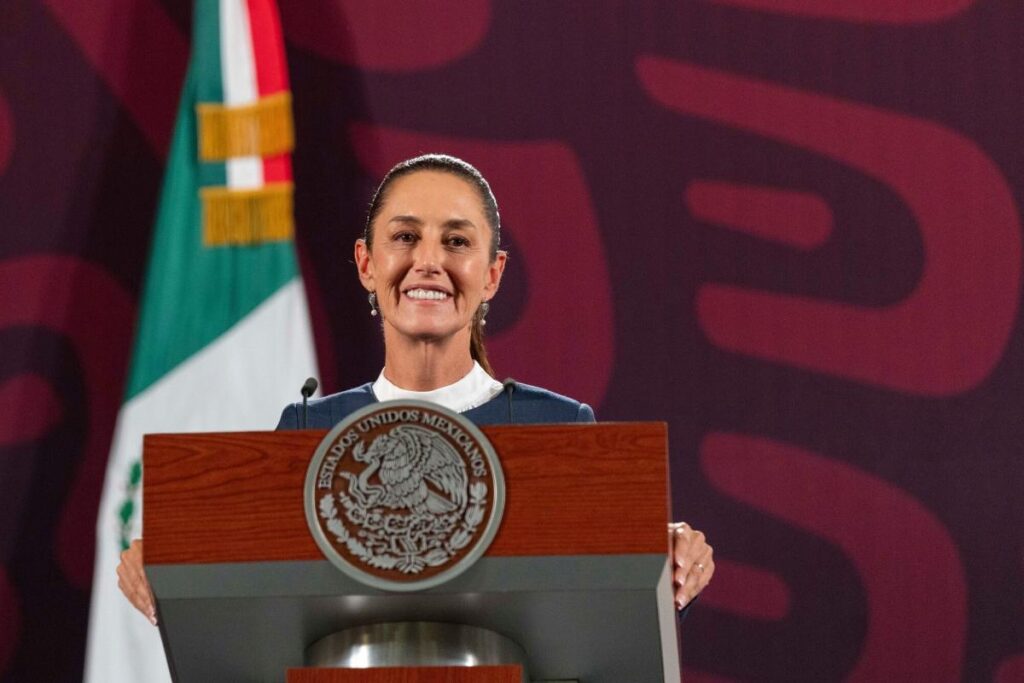Companies such as Amazon.com Inc. and Woodside Energy Group Ltd. have recently announced significant investment projects in Mexico, collectively amounting to approximately $20 billion. This development is seen as a substantial win for President Claudia Sheinbaum, who is eager to regain the confidence of wary business leaders amid a backdrop of economic uncertainty and institutional reforms. The announcement was made following a meeting of the US-Mexico CEO Dialogue, where Sheinbaum aimed to demonstrate her administration’s commitment to fostering a favorable investment climate in Mexico.
Among the major investments highlighted was Woodside’s intention to invest $10.4 billion in a deepwater project within the Gulf of Mexico, in partnership with the state oil company, Petroleos Mexicanos. Additionally, Amazon has committed to spending $6 billion by 2026 to bolster its operational and digital capacities in Mexico. Royal Caribbean Cruises Ltd. is also in the mix with a proposed $1.5 billion investment aimed at enhancing tourism in Quintana Roo state. These investments signal a strong interest in Mexico’s potential for economic growth, even as concerns linger about the political climate and regulatory environment.
During the CEO meeting, Sheinbaum addressed fears surrounding recent constitutional reforms, particularly those perceived to threaten democracy and judicial independence. These reforms include a controversial judicial overhaul and an energy bill that prioritizes state-owned enterprises in energy generation over private companies. Critics have voiced that these changes could increase investment risk by allowing greater influence of Sheinbaum’s Morena party over judicial proceedings. However, Sheinbaum countered these concerns, asserting that her administration seeks to eliminate corruption within the judiciary rather than exert control over it.
Despite the government’s goal of maintaining a 54% stake in energy generation and transmission, Sheinbaum assured investors that a framework would be established for the remaining 46% reserved for private investment. In her effort to address business concerns directly, the government plans to form working groups with companies to discuss energy projects and regulatory conditions. Sheinbaum anticipates the completion of an energy plan by the year’s end, which will include secondary laws aimed at clarifying the involvement of private entities in Mexico’s energy landscape.
Furthermore, in response to concerns raised by business leaders, Sheinbaum detailed plans for the creation of a digital transformation agency intended to streamline processes and reduce bureaucratic hurdles, facilitating smoother pathways for investments. The initiative reflects a broader strategy to create a more business-friendly environment in Mexico, particularly in light of ongoing adjustments required in the wake of constitutional reforms. Sheinbaum emphasized that enhancing the attractiveness of the investment landscape is a top priority for her government, as alignment with private sector needs is crucial for overall economic growth.
Finally, Sheinbaum reiterated the importance of strengthening the US-Mexico-Canada Agreement (USMCA) to ensure that the three nations work in synergy rather than competition. This approach is vital in optimizing the regional economic framework by promoting complementarity within North America, boosting trade and investment flows that benefit all three countries. These discussions, coupled with the significant projects announced by top companies, reflect a concerted effort to revive investor confidence in Mexico amid changing political dynamics and economic goals. As the government navigates these challenges, maintaining clear lines of communication with the business community will be essential for sustaining and attracting further investments.

